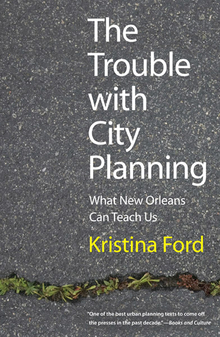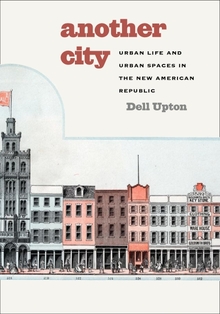Opening up the Suburbs
WARNING
You are viewing an older version of the Yalebooks website. Please visit out new website with more updated information and a better user experience: https://www.yalebooks.com
An Urban Strategy for America
Anthony Downs
In this fast-paced, fact-filled short book, Anthony Downs takes a close look at a national problem of increasing importance—opening up the suburbs to the poor. After marshalling the arguments in favor of introducing low and moderate income housing in suburban areas where it is not now possible, he presents the suburbanites’ case against change. He finds legitimate claims and fears on both sides. Mr. Downs believes it is possible, however, to devise public policies that will reconcile the objectives and legitimate desires of both poorer Americans desiring to upgrade themselves by entering the suburbs and wealthier Americans desiring to protect the quality of their hard-won suburban life. He proposes the concept of balanced communities as well as other public policies to effect this reconciliation.
As the nation moves into the decade of the seventies, the pressures of expanding population on the suburbs are bound to increase. Anthony Downs provides here a thoughtful analysis of the problems that are coming and practical proposals for dealing with them, which will interest the professional planner and the involved citizen alike.
As the nation moves into the decade of the seventies, the pressures of expanding population on the suburbs are bound to increase. Anthony Downs provides here a thoughtful analysis of the problems that are coming and practical proposals for dealing with them, which will interest the professional planner and the involved citizen alike.
"Downs deploys a wide array of lucid yet passionate arguments to persuade [his readers] that the economic and social pressures (and the zoning regulations) which have produced and reinforced the division between the downtown ghettos and . . . protected suburban enclaves are neither inevitable nor just. . . . Anyone concerned about the future of American cities will want to read this book."—Economic Journal
"Anthony Downs's plan for Opening Up the Suburbs is almost certain to spark a major controversy about housing policies on the periphery of American cities. Writing in the style of an essayist, Professor Downs outlines the major arguments for introducing low- and moderate-income households into predominantly middle- and upper-middle-class suburbs. . . . In this volume, Downs has assumed the posture of an advocate for a specific strategy to attack residential segregation, which lies at the core of many metropolitan problems. . . ."—American Political Science Review
"This text represents a great deal of study and thought by one of America's most knowledgeable experts on housing. The author's approach is systematic in that he begins with a discussion of the past trends and provides a detailed analysis of the difference in characteristics of residents in both the slums and the suburbs. From this descriptive base, he argues his case for opening up the suburbs. Realizing that his views will be challenged, Downs proceeds to examine and evaluate each of the objections which will be raised to his suggestions. Finally, he offers a brief examination of the probable benefits and costs from adopting this type of strategy. . . . Downs presents a strong case for opening up the suburbs and his work should be read by all serious students of the urban housing problem."—Journal of Behavioral Economics
"Downs' pessimism glitters, and his book should be read by anyone who cares about the future of metropolitan America . . . . To the extent that any reader can reconcile the promise of the task force with the obdurate problems of Opening Up the Suburbs, he has glimpsed the makings of political coalitions that could end the present socially and environmentally destructive modes of American city building."—Sam Bass Warner, Jr., The New Republic
"Downs makes a major contribution. He systematizes what heretofore has been only a loose collection of ideas. He takes into account the sociological and political as well as the economic aspects of the issue. And, in contrast to much of the current rhetoric, which prescribes instant cures for suburban exclusivity, Downs offers an incremental proposal. His plan calls for experimentation and evaluation en route to its eventual goal."—Sociology
"An impressive study of housing economics and the politics of change, signals the shift in suburban strategy. Open housing now means opening the suburbs to the central city's poor, whatever their race. The book tkaes on spcial significance because its author is one of the nation's outstanding economists, a successful Chicago businessman and a confirmed suburbanite."—The Chicago Sun-Times
"An important, brilliant, and provocative treatment of one of the most complex and crucial problems in urban development and housing."—Robert C. Weaver, former Secretary of the Dept. of Housing & Urban Development
"Downs who is one of our most persuasive economists, makes an effective case for alleviating a national problem of important—making the economic benefits of the suburbs open to the urban poor—by a new strategy of housing." —Publishers Weekly
"A complex and ambitious book which correctly recognizes the importance of achieving economic integration in our suburban areas. Downs does not minimize the political difficulties nor ridicule the suburbanite's concern for property values. Instead, he tries—and generally succeeeds—to fashion an integration strategy which meets these objections squarely."—Washington Monthly
"I want to commend Opening Up the Suburbs to all those who want to read a vigorous, strong-minded, and determined view on this vital subject."—Senator William Proxmire
"Opening Up the Suburbs presents a convincing case for the adoption of a dispersal strategy by the Federal Government. Whether this will occur remains doubtful at the present time. This book will serve a useful purpose if only it leads to an improved level of discourse about the future choices for American metropolitan areas, either a continuation of the present trickle down approach or to some type of economic integration strategy. For this reason, this volume deserves to be widely read."—Journal of American Institute of Planners
Winner of the 1974 Gladys Kammerer Award, awarded by the American Political Science Association.
ISBN: 9780300014556
Publication Date: April 1, 1975
Publication Date: April 1, 1975
150 pages, x








